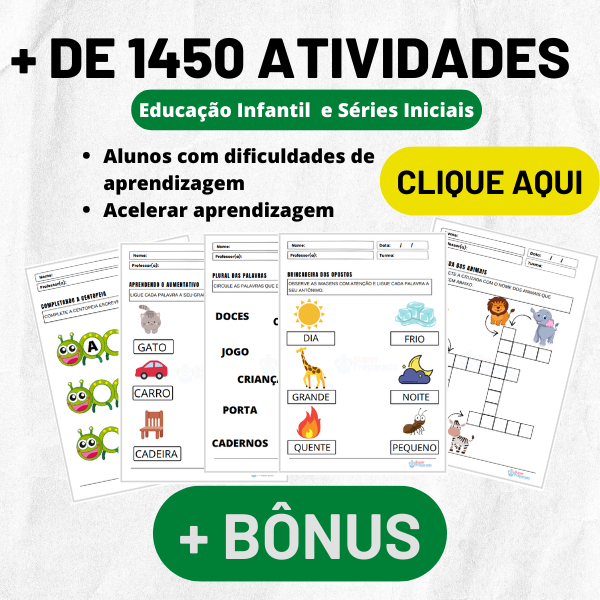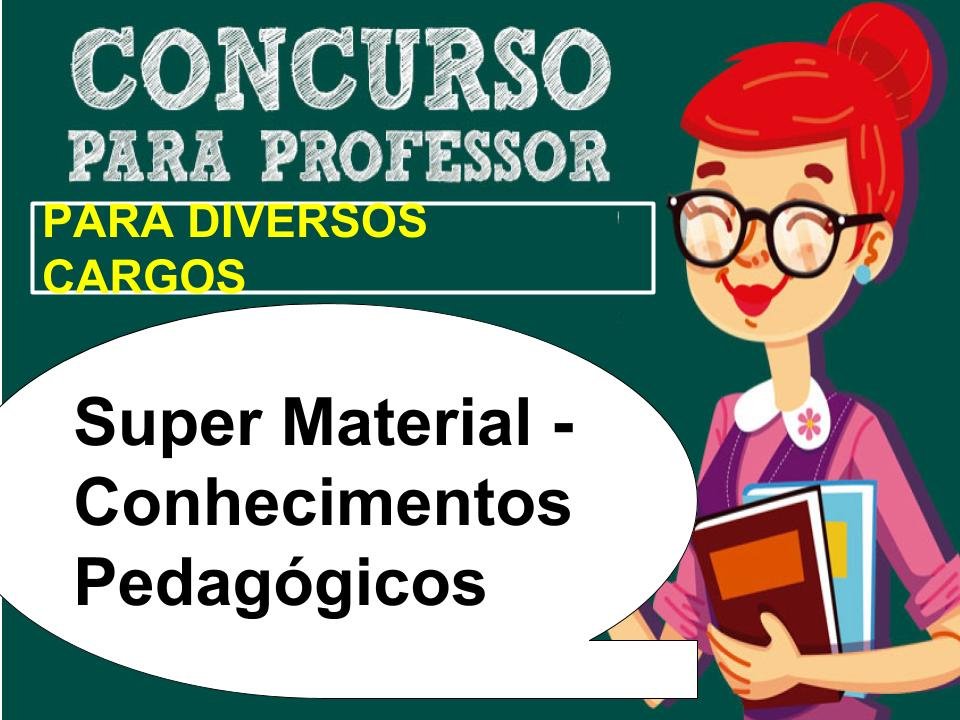Para Baixar em PDF:
Simulado 7 Concurso Professor De Inglês
1.Leia o texto a seguir e responda às perguntas de números 1 a 6.
Some principles for material evaluation
Despite the various approaches and the even greater variety
of learning/teaching situations in which students and teachers
find themselves, there are certain general principles, based on
good language-teaching practice, which will help us in our task
of evaluating course-books.
It is very important that the teaching materials used should
take the learner forward as directly as possible towards his
objectives. The objectives should be decided first, in line with the
overall aim of the teaching programme, and then materials should
be sought which can be related to these objectives. The aims of a
teaching programme should determine the course materials to be
used and not vice-versa.
Our teaching must have as its base a consideration of what
our students need to learn, that is, what they will do with English
on completing their course. This involves the teacher in looking
beyond the confines of the classroom into the outside world,
and focusing his or her attention on the use that the individual
learner will make of what he has learned, in a situation which is
not primarily a learning situation.
Considerando a ideia central do texto e as recomendações da
publicação oficial Parâmetros Curriculares Nacionais –
Terceiro e Quarto Ciclos do Ensino Fundamental – Língua
Estrangeira (p. 20, inter alia) o ensino de língua estrangeira
no sistema educacional brasileiro deve focar, em geral, a
(A) compreensão da leitura.
(B) compreensão oral.
(C) produção escrita.
(D) competência gramatical.
(E) habilidade conversacional.
2.Associando-se as orientações didáticas constantes dos Parâmetros
Curriculares Nacionais – Terceiro e Quarto Ciclos
do Ensino Fundamental – Língua Estrangeira (p. 87 em
diante) às ideias apresentadas pelo texto, pode-se afirmar que,
na escolha de materiais adequados para o ensino do inglês no
sistema educional brasileiro, o professor deverá, entre outras
questões,
(A) privilegiar sempre o uso de novas tecnologias, a fim de
manter o aprendiz atualizado.
(B) refletir e decidir sobre o que é mais adequado para a sua
situação concreta de ensino e aprendizagem.
(C) adotar materiais e procedimentos propostos pelos órgãos
oficiais como roteiro para suas aulas.
(D) aprender a utilizar softwares que reproduzam as condi-
ções básicas da instrução programada.
(E) planejar e implementar atividades de grupo que permitam
a interação social.
3.O fragmento da frase inicial do texto – Despite the various
approaches – poderia ser substituído, mantendo-se o mesmo
sentido e a correção gramatical, por
(A) Although the various approaches…
(B) Even though the various approaches…
(C) The various approaches, though,…
(D) Various approaches, still, …
(E) Notwithstanding the various approaches…
4.De acordo com o segundo parágrafo,
(A) o aprendiz deve se adiantar sempre aos materiais didáticos.
(B) os objetivos do programa de ensino devem adequar-se
ao material didático escolhido.
(C) os alunos serão responsáveis pela escolha do material
didático.
(D) os objetivos determinam os materiais didáticos a serem
utilizados.
(E) os coordenadores de um programa de ensino devem
decidir o uso dos materiais didáticos.
5.According to the third paragraph, what would be advisable
for teachers to do before deciding which teaching materials
are to be used in their teaching?
(A) Establish pre-reading activities.
(B) Assess students formally.
(C) Take students’ needs into account.
(D) Set learning objectives.
(E) Find out which classroom will be used.
6.The text states that “our teaching must have as its base a
consideration of what our students need to learn, that is,
what they will do with English on completing their course.”
Considering Brazilian official teaching documents such as
Parâmetros Curriculares Nacionais – Terceiro e Quarto
Ciclos do Ensino Fundamental – Língua Estrangeira most
students will probably use English for
(A) working as tour guides in large cities.
(B) communicating with people from other countries.
(C) reading texts in their future educational life.
(D) writing letters and e-mails as secretaries.
(E) listening to foreign radio programs.
7.Leia o texto a seguir e responda às questões de números 7 a 10.
English as a foreign language
By foreign language we mean a language used by persons
for communication across frontiers or with others who are not
from their country: listening to broadcasts, reading books or
newspapers, engaging in commerce or travel, for example. No
language is more widely studied or used as a foreign language
than English. (…) To put it bluntly, English is a top requirement
of those seeking good jobs, and it is often the language in which
much of the business of good jobs is conducted. It is needed
for access to at least half of the world’s scientific literature,
and the most important scientific journals are in English. It is
thus intimately associated with technological and economic
development and it is the principal language of international aid.
The great manufacturing countries Germany and Japan use English
as their principal advertising and sales medium; it is the language
of automation and computer technology. Not only is it the universal
language of international aviation, shipping, and sport, it is to a
considerable degree the universal language of literacy and public
communication. It is the major language of diplomacy, and is the
most frequently used language both in the debates in the United
Nations and in the general conduct of UN business.
The text clearly implies that
(A) diplomats who represent their countries at the United
Nations have to be able to speak and understand English
in order to communicate.
(B) scientists should be able to read English if they want
to keep abreast of new developments in their fields of
expertise.
(C) countries like Germany and Japan have been insisting
that, in advertising and sales, their languages should be
used alongside with English.
(D) government officials from countries that receive
international aid have to use English effectively if they
want to receive such aid.
(E) computer technology only operates in English, even
in commercially-powerful countries like Germany and
Japan.
8.In the sentence fragment – To put it bluntly, English is a top
requirement of those seeking good jobs – the phrase To put
it bluntly could be correctly replaced, with no change in the
sense of the sentence, by
(A) To be evasive.
(B) To be insensitive.
(C) To be rude.
(D) To be dull.
(E) To be frank.
9.A frase do texto – Not only is it the universal language of
international aviation, shipping, and sport, it is to a
considerable degree the universal language of literacy
and public communication. – utiliza o recurso sintático da
inversão, para efeitos de ênfase.
Assinale a alternativa em que a mesma estrutura sintática
é usada de maneira idiomática e gramaticamente correta.
(A) Hardly had he finished eating his breakfast when he asked
what there would be for lunch.
(B) Not for one moment doubt I wouldn’t his integrity.
(C) Never again should be allowed such a situation to arise.
(D) Not until many years later the whole truth became
known.
(E) On no account the doctor told his patient that he should
return to work until a complete recovery he had made.
10.In the sentence fragment – It is thus intimately associated
with technological and economic development –the final past
tense morpheme in the verb form associated is pronounced
according to same phonological principle as in the verb form
(A) used.
(B) robbed.
(C) dared.
(D) attended.
(E) searched.
gabarito
1-a
2-b
3-e
4-d
5-c
6-c
7-b
8-e
9-a
10-d
MAIS DE 300 ATIVIDADES DE MATEMÁTICA – PARA BAIXAR
MAIS DE 1450 ATIVIDADES PARA BAIXAR
MAIS DE 5 MIL QUESTÕES DE CONHECIMENTOS PEDAGÓGICOS
APRENDA INGLÊS HOJE! INSCRIÇÕES!
Cursos Online Gratuitos (COM CERTIFICADO)
Materiais PARA CONCURSOS E SELEÇÕES






